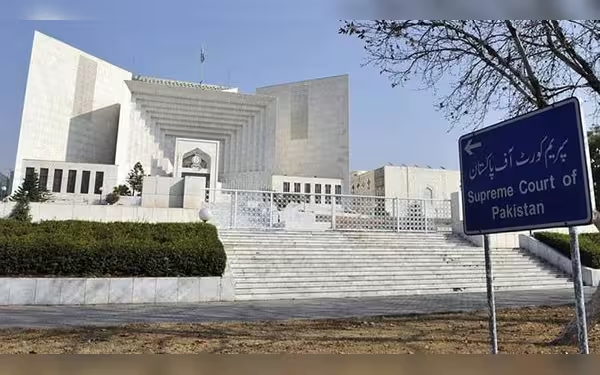Saturday, November 16, 2024 03:21 PM
SC Issues Warning to ECP Over Reserved Seats Implementation
- Supreme Court criticizes ECP for delays in ruling implementation.
- ECP seeks clarification on July 12 order regarding PTI seats.
- Timely action is crucial for maintaining electoral integrity.
 Image Credits: thenews.com.pk
Image Credits: thenews.com.pkSupreme Court warns ECP of consequences for delaying implementation of reserved seats ruling for PTI.
On July 12, the Supreme Court of Pakistan made a significant ruling regarding the eligibility of the Pakistan Tehreek-e-Insaf (PTI) party for reserved seats in the upcoming elections. This decision was crucial as it aimed to ensure that all political parties, including those that have faced challenges, are given a fair chance to participate in the democratic process. However, the Election Commission of Pakistan (ECP) has been criticized for what the Supreme Court described as "dilatory tactics" in implementing this ruling.
During a recent session, the Supreme Court expressed its frustration with the ECP's slow response to the court's order. The court emphasized that the ECP has a "legally binding obligation" to act on its decisions. If the ECP continues to delay, the Supreme Court warned of potential "consequences" that could arise from such inaction. This stern warning highlights the importance of adhering to judicial decisions in a timely manner, especially in matters that affect the political landscape of the country.
The ECP, in response to the Supreme Court's ruling, submitted a plea seeking a more detailed explanation of the July 12 order. This request was made through the ECP's secretary, Omar Hamid Khan. The need for clarification indicates that the ECP is grappling with the implications of the court's decision, which could have far-reaching effects on the upcoming elections.
As the situation unfolds, it is essential for the ECP to act swiftly and decisively. The integrity of the electoral process relies heavily on the cooperation between the judiciary and the electoral body. Delays in implementing court orders can undermine public trust in the democratic system and lead to further complications.
The Supreme Court's warning to the ECP serves as a reminder of the critical role that timely action plays in maintaining the rule of law. As citizens, it is our responsibility to stay informed and engaged in the political process, ensuring that our voices are heard and that our democratic institutions function effectively. The coming days will be pivotal in determining how this situation develops and what it means for the future of political representation in Pakistan.













